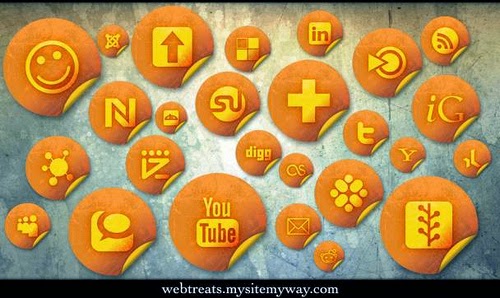In the last couple of weeks the
Australian Health Practitioner Regulation Agency (the body that regulates health professionals in Australia) has released its
social media policy and advertising guidelines. They are generic documents and apply to all the health professions that AHPRA regulates, including midwives, nurses and doctors. The social media policy is broad and uncontroversial. But the advertising guidelines, in particular the advice regarding social media, has caused a good deal of confusion and consternation amongst health professionals.
What is the difference between a testimonial and unsolicited online comment?
The problem with the guidelines is the lack of clarity around the difference between a testimonial used for advertising the services of a health service or health professional, and an unsolicited online comment that is posted by a consumer in an online space, such as Facebook or review website.
It is illegal for health professionals in Australia to use solicited testimonials to advertise their services because of the potential to interfere with health consumers' ability to make informed choices about their care.
What the guidelines advise is that unsolicited appreciative comments or stories posted by health consumers in online spaces belonging to health professionals, such as Facebook, could be deemed as testimonials, and must be removed. Additionally, if these comments are posted in the consumers' own online spaces, health professionals must do all they 'reasonably' can to get the comments removed.
Does AHPRA understand how social media works?
Since the guidelines were published, there has been a lot of discussion about this apparent lack of understanding of how social media works. S
ocial media gives health consumers a voice that they often do not have in the face-to-face setting. Online comments that are both appreciative and critical increase transparency in health care practice, and provide health professionals feedback that supports reflection. These comments and stories are the everyday way that people network and hold online conversations using social media, and generally are not used for advertising.
Is it right to censor health consumers?
One of the main concerns is that the guidelines appear to be an attempt to gag health consumers. The guidelines say that stories told by health consumers and patients could be construed as testimonials. This has huge implications for health professionals. For example, if a woman tells her birth story on her blog and talks about the excellent midwifery care that I provided, I would have to ask her to remove any reference to my clinical care. At best, it feels rude to do that, and could potentially impact on my relationship with that woman - at worse, it feels like censorship.
This advice has implications that reach beyond the online environment. For example, could health professionals be disciplined because of what consumers say about them in birth or death announcements? Would the nurse who was praised for her care of a terminally ill patient in a death announcement be taken to court?
How 'reasonable' is AHPRA being?
A further concern that health professionals have is the advice that they must make "reasonable" efforts to have comments and stories removed from online spaces that are not under their control. There is no discussion about what it deemed to be reasonable. Keeping in mind how far comments are shared, 'liked' and re-tweeted, the guidelines do not make it clear what is considered to be 'reasonable' and how far health professionals have to go to get online content removed, or how they should track online content.
All for one, and one for all?
Criticism has ensued since the publication of these guidelines,
especially from doctors. This led to what appeared to be back-tracking from the Medical Board last Friday, when
Dr Joanna Flynn announced in a media statement that "there is a clear difference between advertising - which requires an
intent to promote the health services - and unsolicited online comment
over which practitioners do not usually have control", and that health professionals are not expected to monitor or control what is written about them in online spaces.
This statement was well received by doctors, but the rest of us continue to be unclear if the statement from the Medical Board applies across all the other national Boards ie was the Medical Board speaking on behalf of AHPRA?
Another question is,
what credibility does this media statement have compared to the guidelines? In other words, if I am charged with breaching National Law, am I judged against the media statement, or the guidelines? If
this response to one doctor
is anything to go by, the Medical Board spoke out of turn, and AHPRA
does not intend to change the stance that it has taken in the
guidelines.
Where does this leave us?
Until if or when the guidelines are amended, health professionals must use them as their basis for practice, and not base their actions on unsubstantiated media statements.
In the meantime, I would advise all health professionals to write to AHPRA asking that they amend the guidlines to clarify that:
- testimonials are solicited comments and stories used for the purpose of advertising;
- unsolicited comments and feedback from consumers in either health professionals' online space, or that of the consumer, are not considered to be testimonials;
- heath professionals are not expected to monitor online spaces, or ask consumers to remove content from consumers’ own space.
Disclaimer: This blog post contain my own views and are not necessarily that of the Australian College of Midwives
Image: '
Does flickr need an eyetest (freedom test)?'
http://www.flickr.com/photos/60364452@N00/546901054














